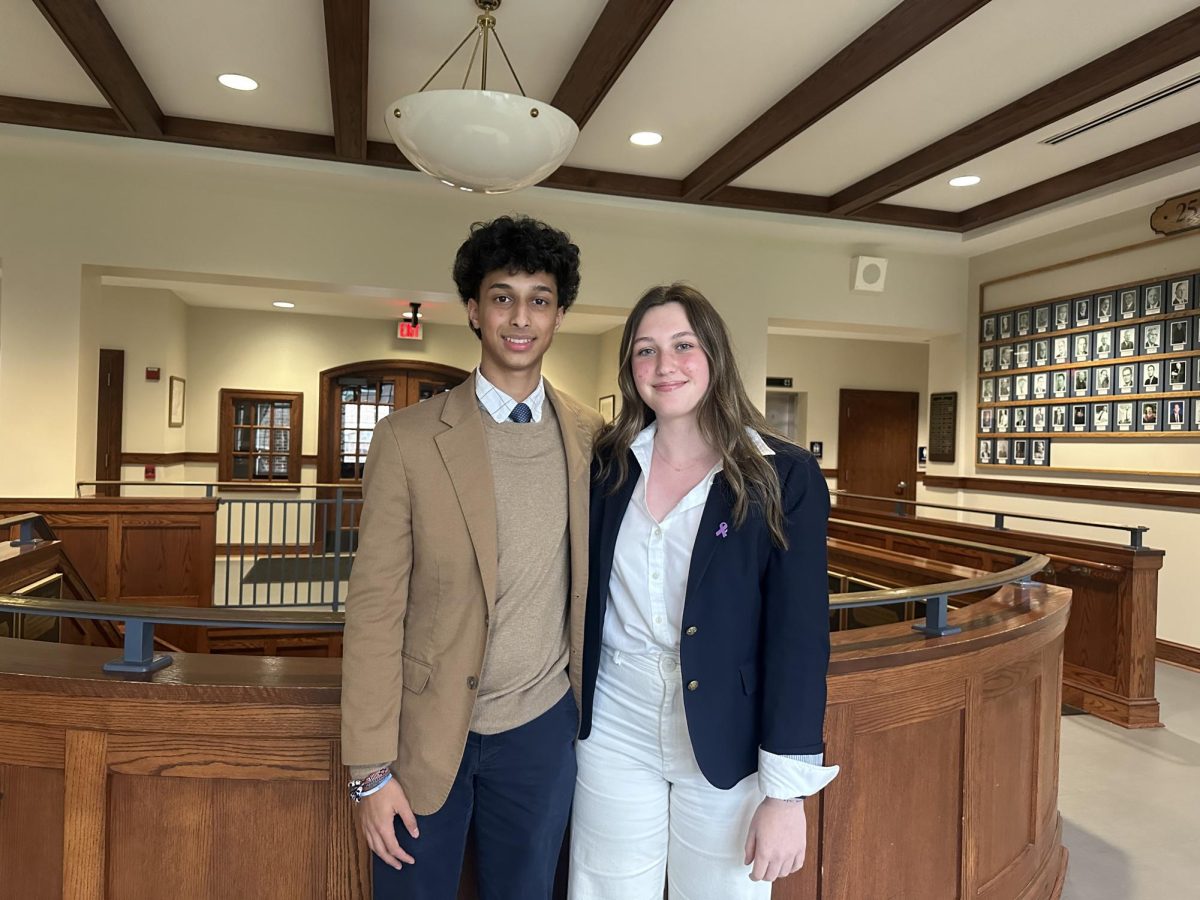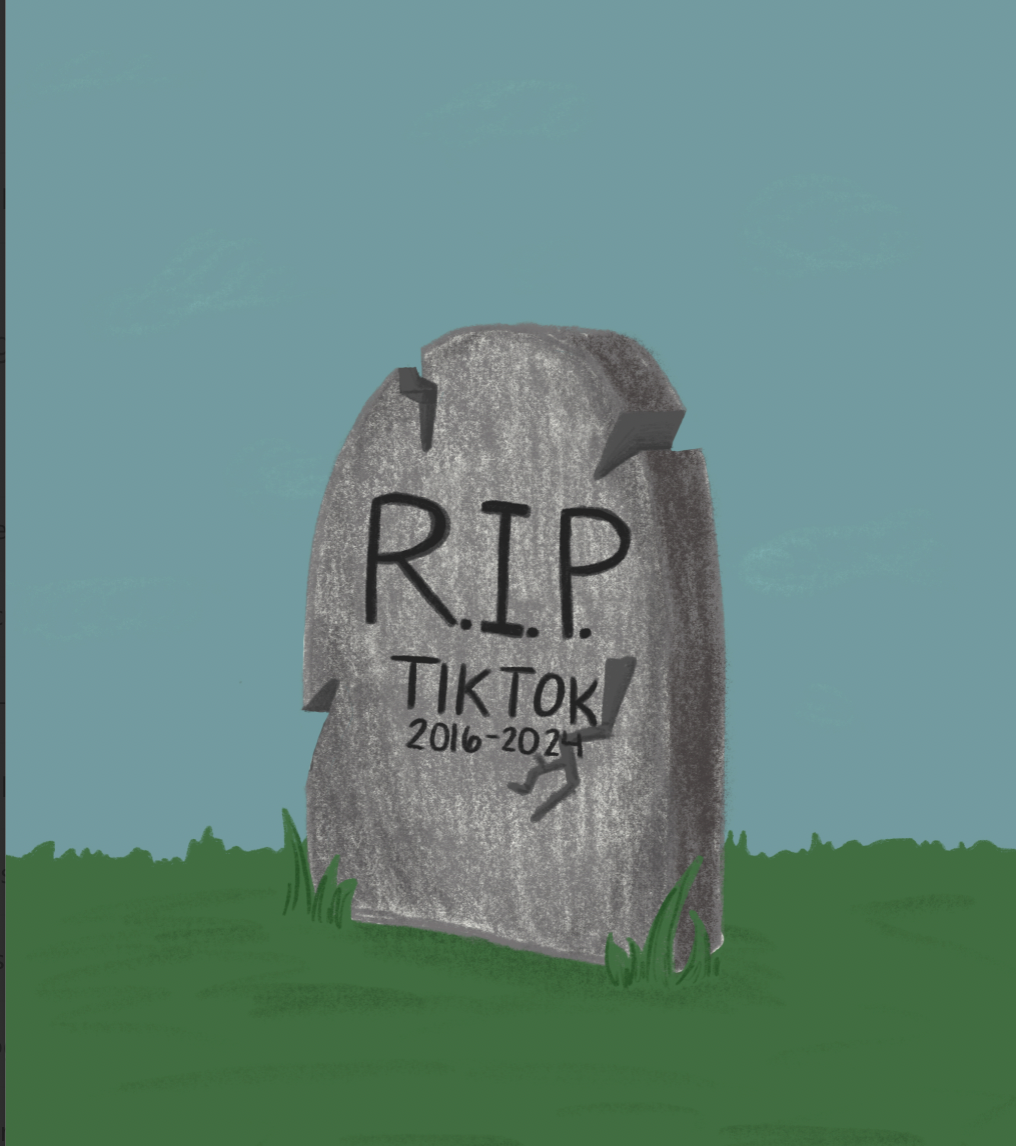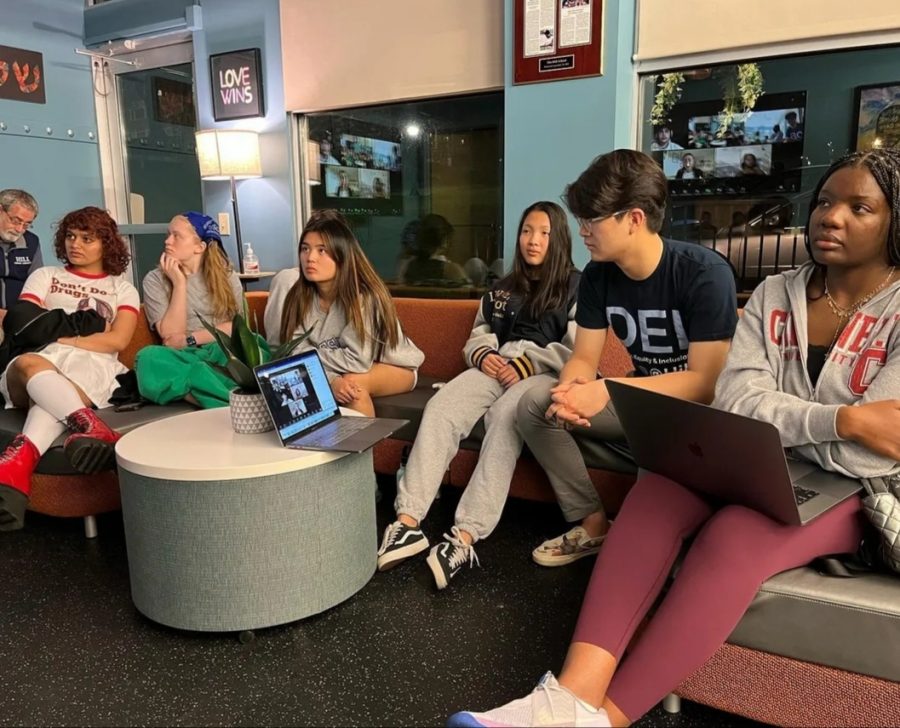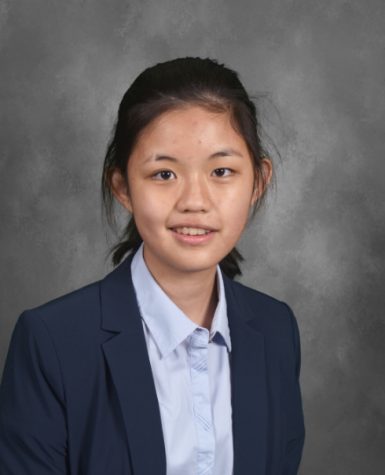Hill community discusses critical race theory in DEI Inclusion Week event
Media: @hilldiversity/IG
Students discuss critical race theory with recent alumni in the Warner Center.
As part of the Hill community’s celebration of Inclusion Week, students and faculty gathered in the Warner Center to talk about critical race theory—the idea that race is a social construct and that racism is embedded in the country’s legal systems. They were joined by panelists Sasjha Mayfield ’21, Adam Benzanine ’21, and Kendal Thomas ’21.
The event began with some guiding questions posed by DEI co-chairs Olivia Kalu ’22 and John Ju ’23. One of these questions explored the potentially divisive nature of critical race theory. The three panelists generally agreed that critical race theory is meant to be a neutral topic that should not be considered polarizing since it is essentially a historical analysis of how race impacts systems in America.
“I think it all has to do with how a narrative is being formed around this piece of history,” Thomas said. “I assume this word of guilt is about the concept of white guilt. If you feel guilty that you or your ancestors are perpetuating these systems, maybe that is something you need to reconcile with. That is a part of coming to terms with our own social positions.”
After that, the discussion opened up, and the whole group talked about a few broader topics, such as how one might facilitate difficult conversations on race both inside and outside the classroom.
“I think that certain people will hear certain words and just shut down. In their head, they’ll be like, I’m not engaging in this conversation,” Benzanine said. “But, if you start with a basic concept like there are Black people and white people, sometimes that’s the only thing they can comprehend. If you start from there, that’s when those conversations actually begin to get somewhere.”
All three panelists also emphasized the importance of recognizing times when it is potentially better to walk away from a difficult conversation.
“PK [Reverend Khristi Adams] will tell you if she hasn’t already; you do not always have to be a teachable moment,” Mayfield said. “Sometimes it is important and necessary to preserve your own peace and try to be as happy as you can be for yourself and not always worry about trying to reach people who may be unreachable.”
Throughout this talk, Hill faculty members also chimed in to share their thoughts on various topics, such as the importance of examining race and critical race theory from several different lenses.
“Some of the same folks who don’t want to talk about CRT and so forth, are also the ones who are very anti-global. They want to have very provincial, very local views on things. I think that as we reach out and look at other cultures, we start to look at how do they see us? How do they see others that we’re looking at only from our lens right here?” Chris DeLucia, Senior Master of World Languages, said. “A lot of times we’re really looking at things from very narrow lens, and I just want to sort of bring that bigger picture out there of, not just history, but just global perspectives.”
As a whole, both students and faculty seem to think that this event was one that is beneficial.
“Before this event, I had a broad idea of what critical race theory is but having this discussion really helped me get a better understanding of it,” Angie Chi ’23 said. “I think these conversations are worth having for anyone who wants to learn about CRT and other topics related to race.”
DEI faculty advisor Rev. Khristi Adams had a similar sentiment when explaining the importance of such a talk.
“I am a big believer in centering the voices of young people when discussing the issues in society. There should not just be adults in the conversation since young people are going to be the adults leading this world in the future,” Adams stated. “Plus, we debate over issues such as education which involves young people, so why aren’t they in the conversation? We have a responsibility to shape their mind, but that doesn’t mean they don’t have opinions on their education. This event and this whole week is very much focused on centering their voices.”




























